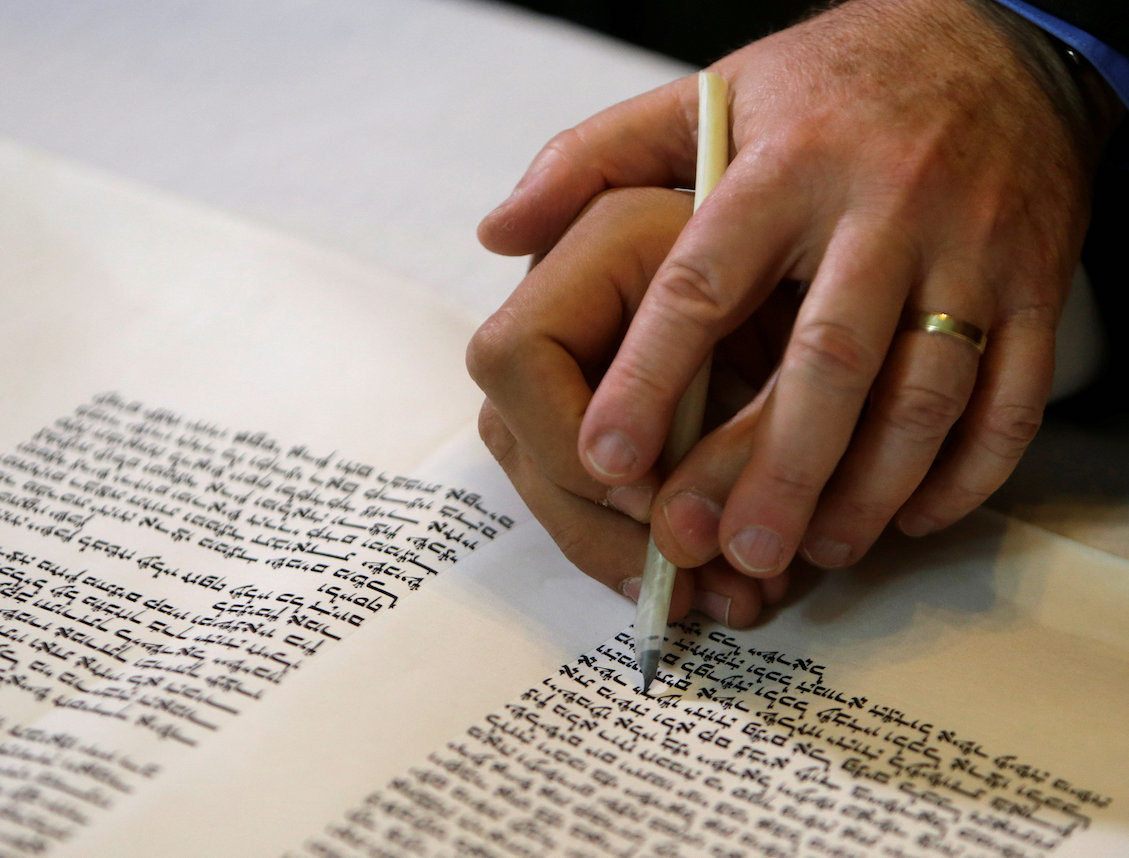 Reuters/David W Cerny
Reuters/David W Cerny One week before Pesach, I sat in a hospital room in a Philadelphia intensive care unit. In that moment, I was not a rabbi. I was a brother.
I was there with my older brother, Eyal, who has been a quadriplegic for the past 32 years as the result of a brain stem tumor and stroke. He is completely broken physically. Over the years, there have been frequent hospitalizations. On this particular visit, we received the news that Eyal would need dialysis.
During times like these, my family has gained the uncanny ability to find Divine sparks outside of synagogue sanctuaries and community centers and inside the walls of hospitals, where the human soul is at its most vulnerable. These sacred moments are Torah study in action.
Someone once asked the Chazon Ish, a leading rabbinic scholar in the first half of the 20th century, if he thought it advisable to seek solitude in order to study Torah, without any distractions and interruptions. The rabbi answered, “My heart cannot believe that by being isolated from everyone you can acquire a true acquisition of Torah. It is quite obvious that society and friends will assist you.”
In fact, the midrash teaches that God commanded Moses to read Parashat Kedoshim in front of the entire assembly of people, because most of the essentials of the Torah are summarized within its holiness code. This includes the commandment to love your fellow human being (Leviticus 19:18), which can be fulfilled at all times, every single second of the day. This commandment can be fulfilled in action but also in thought. When you are happy about the good fortune of another, this is loving your fellow human being. The same applies for suffering. If you feel sad because of another person’s suffering, you fulfill this commandment.
In essence, holiness is a universal language. The Kotzker Rebbe once said, “Don’t only study Torah; be a Torah.” We must live out the prinicples taught to us by our tradition, both in joy and sorrow.
In my brother’s Philadelphia hospital room, we met Eyal’s dialysis nurse, Elaysha. After a brief introduction, she was silent for the next two hours, almost seeming upset at the world. My parents, siblings and I sat impatiently, waiting for the session to conclude.
Thankfully, my mother brought a piano keyboard to the hospital and asked me to lead a sing-along and lift everyone’s spirits. As we started to sing our favorite Jewish camp songs, Elaysha perked up and asked, “What type of music is that?”
“Jewish music,” I replied.
Elaysha told me she is a drummer in her church band, and I proceeded to let her know that she had walked into a room full of rabbis. Like me, my father, my sister and my wife all are rabbis. This fact did not scare her, but brought her closer to our sacred conversation.
Elaysha informed us that she comes from a family of pastors, but that she did not find her calling, as she is only a dialysis nurse. At that moment, as Elaysha administered dialysis to my brother, I told her, “Elaysha, there is no better calling than what you are doing: walking into a room with people who are spiritually and physically low, giving them the hope that they can be lifted up.”
For the next two hours, we spoke in a universal language. We shared our favorite biblical passages, and our best moments growing up as preachers’ kids. As the dialysis session concluded, we even sang a song, one that has been sung from synagogue and church pulpits alike: “Lord, prepare me to be a sanctuary.”
Is this not what Kedoshim teaches us?
Yes, many feel they must enter a sanctuary in order to find holiness, but the truth is that if we each try, we can be our own sanctuary, pure and holy, tried and true.
Elaysha left the room that evening, and my entire family felt blessed by her presence. While we have not seen her since, we have felt that Divine spark that she brought us on that day.
Those hours of holiness were not confined to a synagogue, school or even a home. Rather, that sacred time was the pinnacle of the philosophical thinking of the Chazon Ish — learn holiness in your sacred books, practice holiness in your sacred lives.
Hundreds of years earlier, the prophet Zechariah lived during a tumultuous time of Jewish history and yet preached a message of optimism. He said Jews are assirei tikvah, prisoners of hope. While a prisoner connotes being bound up to something else, Jews are bound with hope.
A hospital can be a scary place. Yet, a hospital is where we constantly see people expressing hope; a place where an angel like Elaysha enters your life for a brief moment, a place where we can fulfill the Torah’s command to strive for holiness today.
Rabbi Erez Sherman is a rabbi at Sinai Temple.






















 More news and opinions than at a Shabbat dinner, right in your inbox.
More news and opinions than at a Shabbat dinner, right in your inbox.